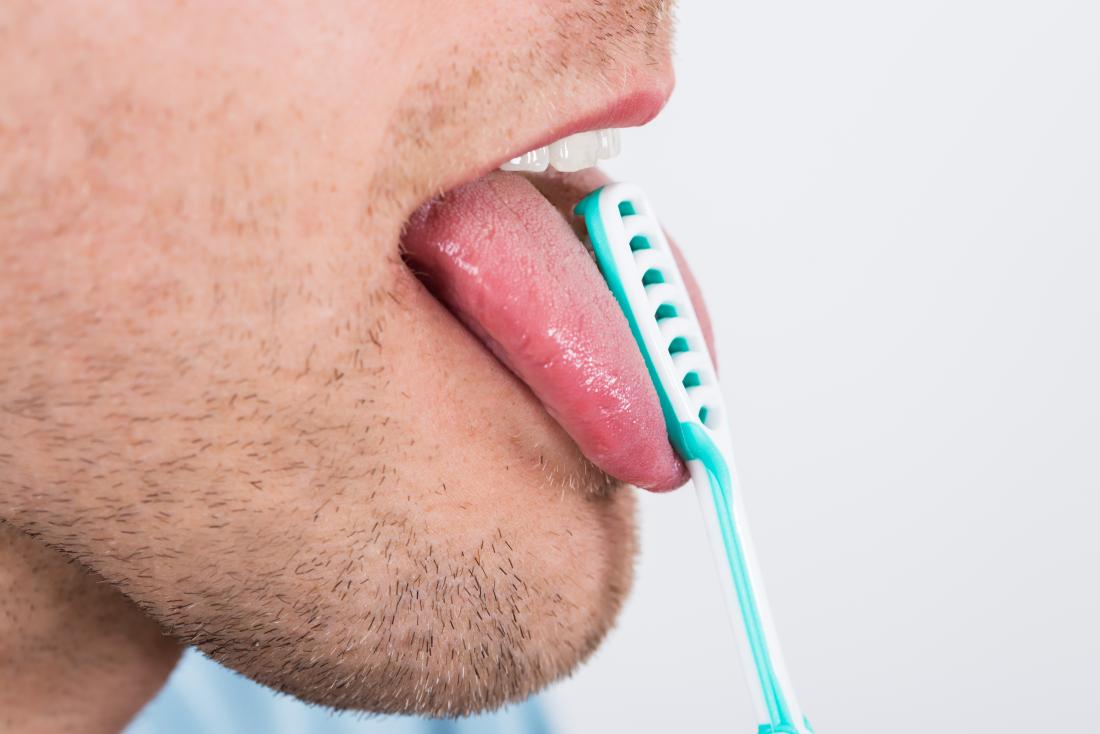Fortunately, an orange tongue is usually caused by something a person has eaten, such as an orange popsicle, gelatin, hard candy, or another type of food containing artificial coloring.
However, if a person has not recently eaten one of these foods, an orange tongue can indicate an underlying medical condition.
Causes
The following conditions and factors may turn the tongue orange:
1. Poor oral hygiene

Food that is rich in beta carotene may cause the tongue to turn orange.
If a person does not regularly brush their teeth and tongue, food and other debris can build up.
Using tobacco and drinking coffee or tea can make the tongue appear orange if a person does not brush their teeth afterward.
Severe dry mouth, or xerostomia, can also turn the tongue orange. Dry mouth prevents bacteria from being flushed away as usual. This can lead to oral decay.
2. Oral thrush
Oral thrush, or an oral yeast infection, occurs when too much of the fungi Candida collects on the tongue. This buildup can cause the tongue to appear yellow or orange.
Oral thrush affects people of all ages. However, it is especially prevalent in people who take steroid medications or have weakened immune systems.
Infants are also prone to oral thrush, especially if they are on antibiotics, which can kill the bacteria that protect against an overgrowth of yeast.
Oral thrush can be uncomfortable and affect a person’s ability to eat and speak. Anyone who suspects that they have oral thrush should see a doctor.
3. Certain medications
Some medications contain ingredients that can temporarily turn the tongue orange. One example is rifampin, an antibiotic that doctors prescribe to treat tuberculosis.
Other medications that can lead to an orange tongue include:
- amiodarone
- bleomycin
- chloroquine
- chlorpromazine
- doxorubicin
- hydroxychloroquine
- minocycline
- quinacrine
- quinidine
After taking the medication and having something to drink or brushing the teeth, the orange tint will usually disappear within a few hours.
4. Excess beta carotene
Beta carotene is the compound that gives carrots their orange color. Eating foods rich in this substance can cause discoloration of the skin and tongue. Doctors call this condition carotenemia.
Carotenemia is most common in infants and young children, who often eat mashed carrots. Carotenemia is harmless, but it may look like jaundice, a condition that causes the skin to turn yellow.
However, the whites of the eyes will also turn yellow in a person with jaundice, while this is not usually true in people with carotenemia.
Foods that contain high amounts of beta carotene include:
The treatment for carotenemia is simply to eat fewer of these foods. It may take several weeks or months for the skin and tongue to return to a normal color.
Treatments

Brushing twice a day and using a tongue scraper will help remove bacteria.
If poor oral hygiene is causing an orange tongue, a person should take steps to improve their dental care routine. This should involve brushing twice a day.
A person may also wish to use a tongue scraper, which can remove excess bacteria and particle buildup. Going to a dentist twice yearly for professional teeth cleanings can also help.
For oral thrush, doctors may prescribe a liquid compound containing nystatin, diphenhydramine, lidocaine, and triamcinolone. This can be used as a regular mouthwash: swish, gargle, and spit. Do this two to three times per day until the infection has gone.
If the liquid treatment is ineffective, a person may need to take antifungal pills.
Other tongue colors
Below are several conditions that can cause the tongue to change color:
Black tongue: This can be the result of a buildup of dead skin cells, and the tongue may also look hairy. While the condition is not harmful and can resolve with brushing and rinsing, the appearance may be alarming. Medications containing bismuth can also turn the tongue black.
Bright red tongue: This can indicate the presence of scarlet fever or Kawasaki disease, especially in a child. It may also be caused by or inflammation of the tongue, which is known as glossitis.
White patches on the tongue: These patches are another symptom of oral thrush. They can also indicate leukoplakia, dehydration, fever, or syphilis.
Yellow tongue: A yellow tongue can be a sign of jaundice, a condition that involves high amounts of the pigment bilirubin building up in the body.
When to see a doctor
An orange tongue is not typically a cause for concern. The color will usually return to normal if a person eats fewer orange-colored foods or improves their oral hygiene.
However, anyone who experiences discomfort or additional symptoms should see a doctor.
Let’s block ads! (Why?)





